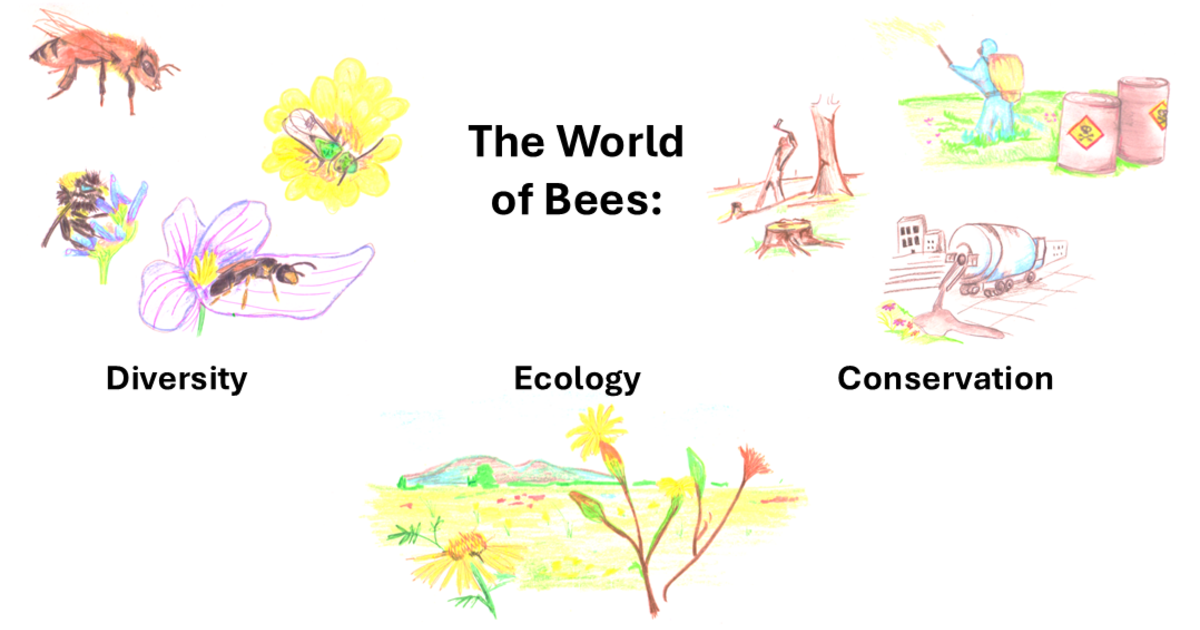The World of Bees: Diversity, Ecology and Conservation
A special issue of Applied Sciences (ISSN 2076-3417). This special issue belongs to the section "Ecology Science and Engineering".
Deadline for manuscript submissions: 25 February 2026 | Viewed by 1117

Special Issue Editors
Interests: pesticide toxicology; honey bee; pesticide dissipation; insect physiology; circadian rhythms
Special Issues, Collections and Topics in MDPI journals
Interests: the circadian clock of the honeybee; toxicology of bees; gas messengers and their interaction with the internal clock; seasonality in reproduction and the mechanism of its regulation
Special Issue Information
Dear Colleagues,
Currently, approximately 6000 species of the family Apidae have been described worldwide. Among them are solitary species, eusocial species, and those exhibiting very complex social behaviors. Many of these bees build nests, but there are also kleptoparasitic species that feed on the work of other members of their family. Virtually all species within this family depend on floral food sources, pollen and nectar, although their diets often include other components as well. By collecting floral food, these animals play a very important role in the cross-pollination of plants. In this regard, the representatives of the species Apis mellifera, known for their floral fidelity, dominate: they have been spread worldwide along with European travelers and are the most important pollinators of monoculture crops.
The world of Apidae is highly diverse, which is why in our Special Issue we would like to publish articles on a very broad range of topics. We gladly accept manuscripts concerning the biodiversity of bees in different regions, as well as threats impacting this biodiversity, both from human activities and environmental pressures, including invasive species. We are also interested in issues related to the functioning of individual species, such as their lifestyle, distribution, diet, physiology, seasonality, and genetic variability. We invite researchers studying social bees, including honeybees, whose diversity of races and lines offers a wide spectrum of research possibilities. The economic importance of this species for the economy or human health is difficult to estimate, but the potential damage caused by the honeybee as an alien species and an active nest defender is also increasingly being discussed, and we will be happy to address all of these topics in our Special Issue.
We sincerely invite you to submit manuscripts to our Special Issue, which will help us expand our knowledge about the world of bees.
Dr. Bartosz Piechowicz
Dr. Maria Romerowicz-Misielak
Guest Editors
Manuscript Submission Information
Manuscripts should be submitted online at www.mdpi.com by registering and logging in to this website. Once you are registered, click here to go to the submission form. Manuscripts can be submitted until the deadline. All submissions that pass pre-check are peer-reviewed. Accepted papers will be published continuously in the journal (as soon as accepted) and will be listed together on the special issue website. Research articles, review articles as well as short communications are invited. For planned papers, a title and short abstract (about 250 words) can be sent to the Editorial Office for assessment.
Submitted manuscripts should not have been published previously, nor be under consideration for publication elsewhere (except conference proceedings papers). All manuscripts are thoroughly refereed through a single-blind peer-review process. A guide for authors and other relevant information for submission of manuscripts is available on the Instructions for Authors page. Applied Sciences is an international peer-reviewed open access semimonthly journal published by MDPI.
Please visit the Instructions for Authors page before submitting a manuscript. The Article Processing Charge (APC) for publication in this open access journal is 2400 CHF (Swiss Francs). Submitted papers should be well formatted and use good English. Authors may use MDPI's English editing service prior to publication or during author revisions.
Keywords
- bees
- bee biodiversity
- new Apidae species
- invasive species
- bee physiology
- bee pathology
- honeybee
- threats to bees
- importance of bees as pollinators
Benefits of Publishing in a Special Issue
- Ease of navigation: Grouping papers by topic helps scholars navigate broad scope journals more efficiently.
- Greater discoverability: Special Issues support the reach and impact of scientific research. Articles in Special Issues are more discoverable and cited more frequently.
- Expansion of research network: Special Issues facilitate connections among authors, fostering scientific collaborations.
- External promotion: Articles in Special Issues are often promoted through the journal's social media, increasing their visibility.
- Reprint: MDPI Books provides the opportunity to republish successful Special Issues in book format, both online and in print.
Further information on MDPI's Special Issue policies can be found here.






